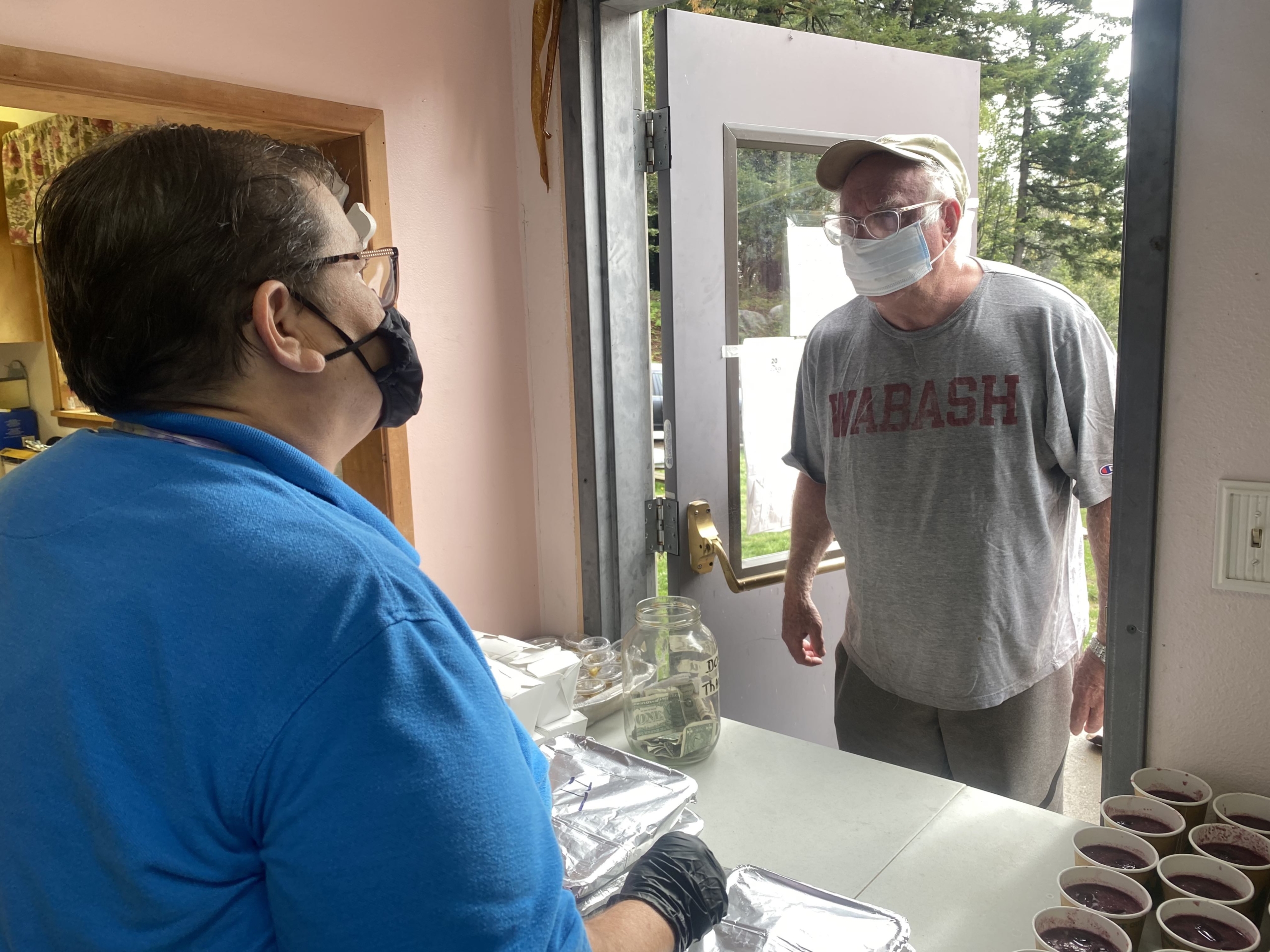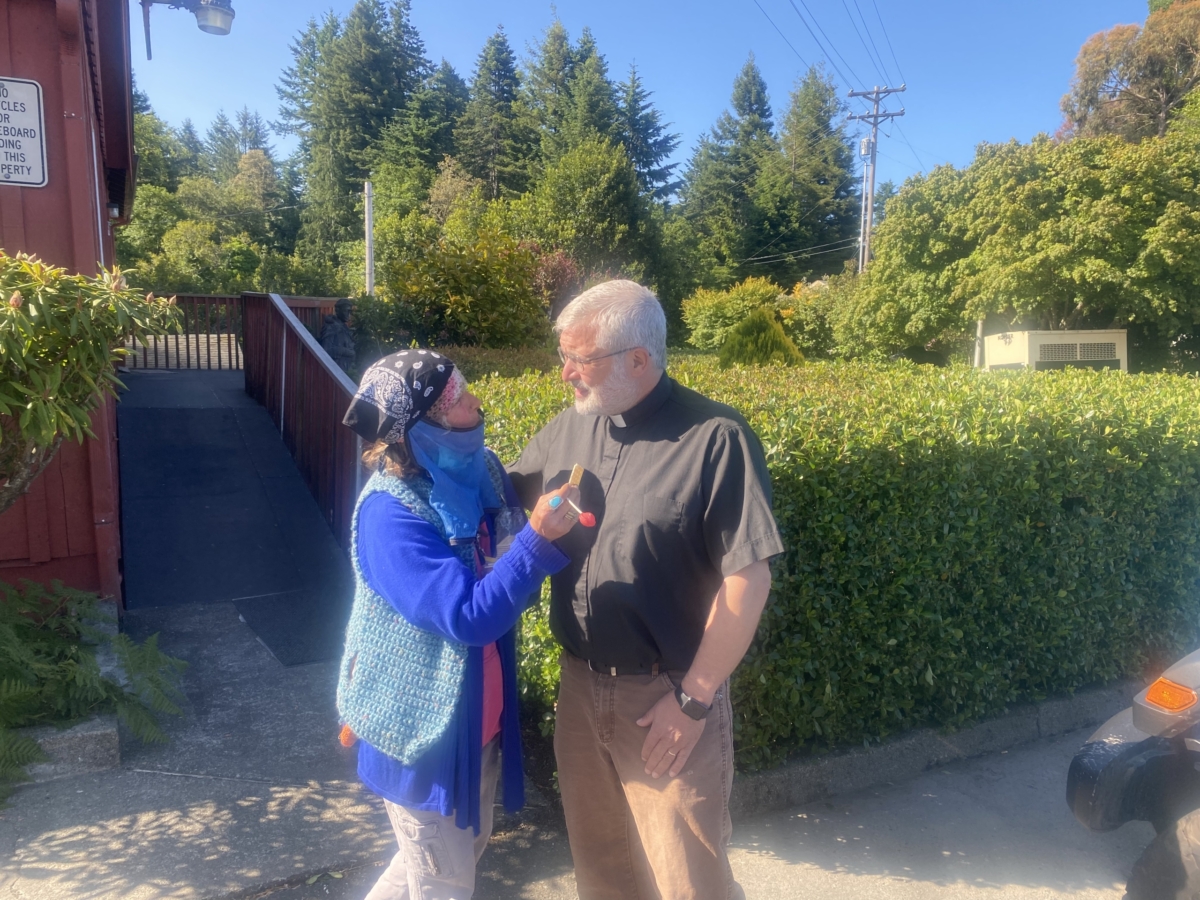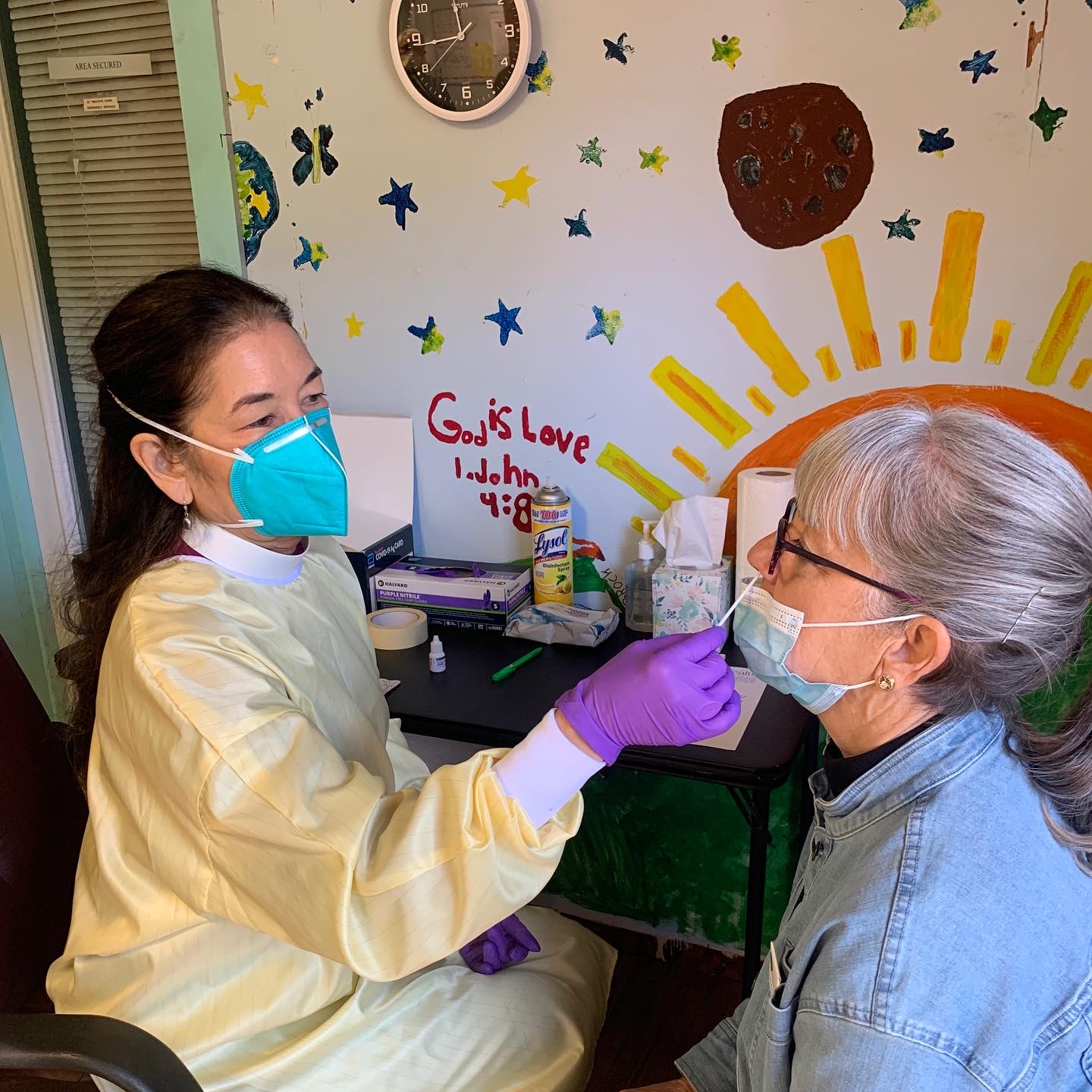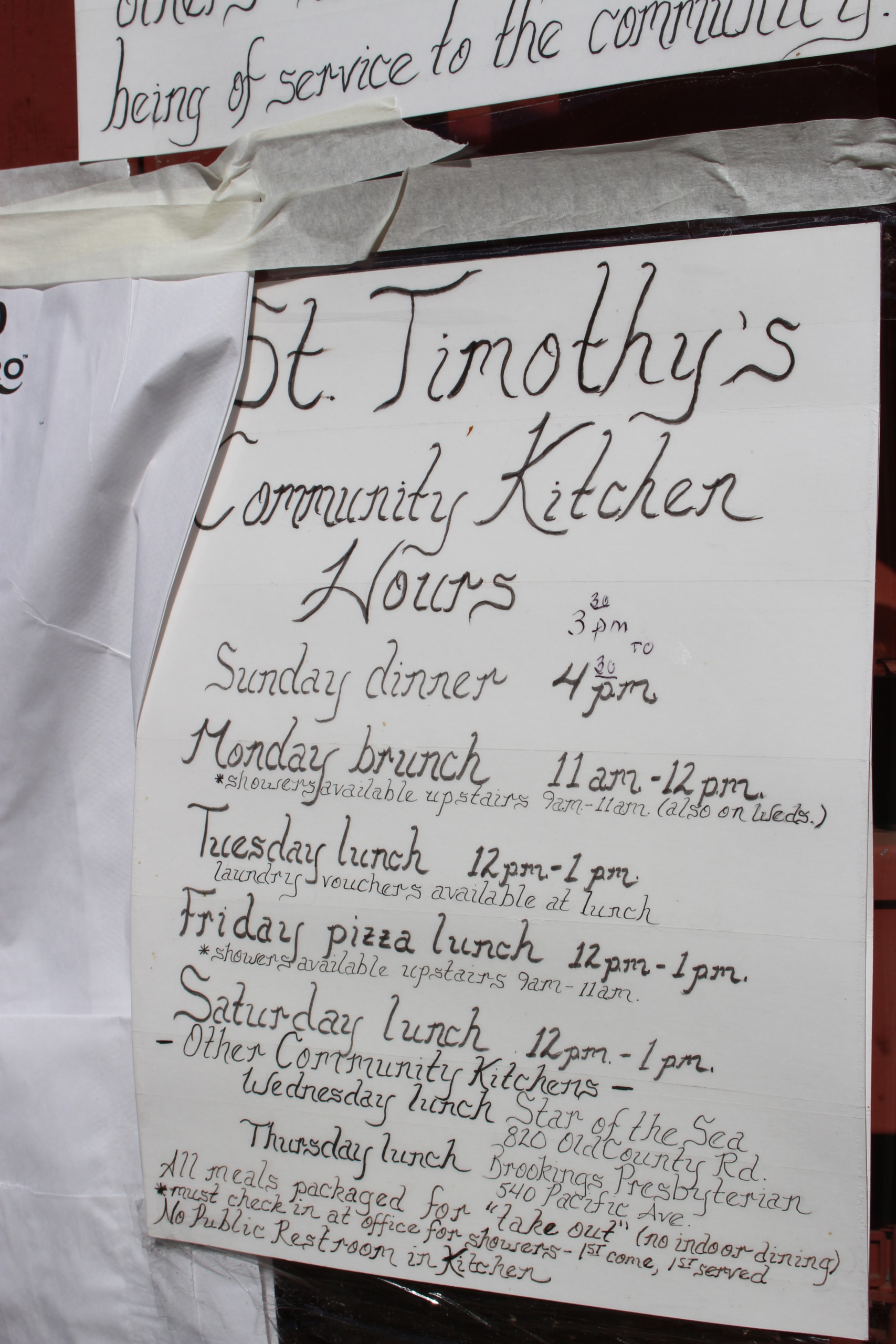With diocese’s support, Oregon parish continues feeding homeless despite city restrictionsPosted Dec 2, 2021 |
|

A volunteer distributes food at St. Timothy’s Episcopal Church in Brookings, Oregon. Photo: Bernie Lindley
[Episcopal News Service] An Oregon parish that has been providing critical services to homeless people despite opposition from neighbors is now taking a stand against new restrictions on its feeding ministry imposed by city officials in Brookings, on the coast near the California state line.
On Oct. 26, the Brookings City Council passed an ordinance that restricts distribution of free meals to only twice a week. St. Timothy’s Episcopal Church currently distributes meals four times a week.
“There’s no question in my mind that it’s directed at us,” said the Rev. Bernie Lindley, vicar at St. Timothy’s. The congregation will continue feeding homeless and hungry people four times a week in defiance of the ordinance with the support of the Diocese of Oregon, which is prepared to defend the parish in court if necessary.

At right, the Rev. Bernie Lindley, vicar of St. Timothy’s Episcopal Church in Brookings, Oregon, speaks with Laura, a client of the church’s homeless ministry. Photo: Machell Carroll
St. Timothy’s fills a social service void in an area where there are many unhoused and transient residents but few resources available to them. A recent count found 121 homeless people living in the ZIP code that covers Brookings, Lindley said, but the small city doesn’t provide homelessness services, and there are no homeless shelters in the county. For years, the parish has provided a variety of services for homeless people, including its soup kitchen and pantry; showers and restrooms; COVID-19 vaccine clinics; and an advocacy team that helps homeless people sign up for affordable housing wait lists, get identification cards and obtain benefits.
But Brookings has recently seen a backlash against the homeless and those who care for them, including St. Timothy’s. In June, 29 residents petitioned the city to stop St. Timothy’s homeless ministries, citing dangerous and disruptive behavior by people staying in the parish’s parking lot. The mayor and members of the city council have been critical of providing services to homeless people, saying it attracts them – and problems associated with them – to the area.

Volunteers prepare food at St. Timothy’s Episcopal Church in Brookings, Oregon. Photo: Bernie Lindley
Lindley spoke to Episcopal News Service by phone while working his other job: unloading a catch of crab from his commercial fishing boat. He explained that the city council claims that St. Timothy’s is operating a restaurant in a residential area, which is banned under local zoning laws. Lindley said the city told him that the only way St. Timothy’s soup kitchen could continue operating legally would be to get a conditional use permit, but that would only allow meal service twice a week.
“If we applied, we’d have to stop feeding two days a week, and we’re not going to do that,” Lindley told ENS. “So if we applied, it would be disingenuous of us to do so. There’s no way we’re going to apply.”
By continuing its regular meal service, St. Timothy’s risks legal action from the city, including possible fines. But if it comes to that, Lindley is confident that the church can win in court, especially because St. Timothy’s has the Diocese of Oregon on its side. Bishop Diana Akiyama and Diocesan Chancellor Emily Karr “are in regular conversation” with Lindley, said Alli Gannett, the diocese’s director of communications.
“The diocese fully supports St. Timothy’s and Father Bernie, and [we] are here to work with the city of Brookings,” Gannett told ENS. “If there were to be any fines or anything, I know that our diocese is willing and able to fight those.”
Lindley described the city’s actions as an affront to the religious freedom guaranteed by the Constitution that would not stand up in court.
“The founding fathers did not want [the government] to prevent homeless people from being fed,” he said.
“The diocese is pretty hopeful – also from seeing other churches in other parts of the country face similar issues and the churches have prevailed,” Gannett said.
Akiyama visited St. Timothy’s in October to volunteer at its COVID-19 vaccination and testing clinic, swabbing the noses of those who came to be tested. The Oregon Health Authority designated St. Timothy’s an official clinic in September, granting it $405,000 to continue testing and vaccination.

Oregon Bishop Diana Akiyama administers a COVID-19 test at St. Timothy’s Episcopal Church in Brookings, Oregon, on Oct. 9, 2021. Photo: Alli Gannett
“The diocese has been focused on supporting St. Timothy’s in their ministry,” Akiyama wrote to the diocese afterward. “It seems that the good work of embodying Christ’s love for the world is threatening to those who do not recognize the compassion that is alive at St. Timothy’s.
“Beyond being highly organized, well-staffed, and attentive to detail, the folks at St. Timothy’s are serving with a heartfelt commitment to those in need,” she continued. “Let’s all remind St. Timothy’s, the city of Brookings, and each other of the wondrous work that is revealed when we awaken to the truth that what we “do to the least of these, you do to me.”
– Egan Millard is an assistant editor and reporter for Episcopal News Service. He can be reached at emillard@episcopalchurch.org.



Social Menu